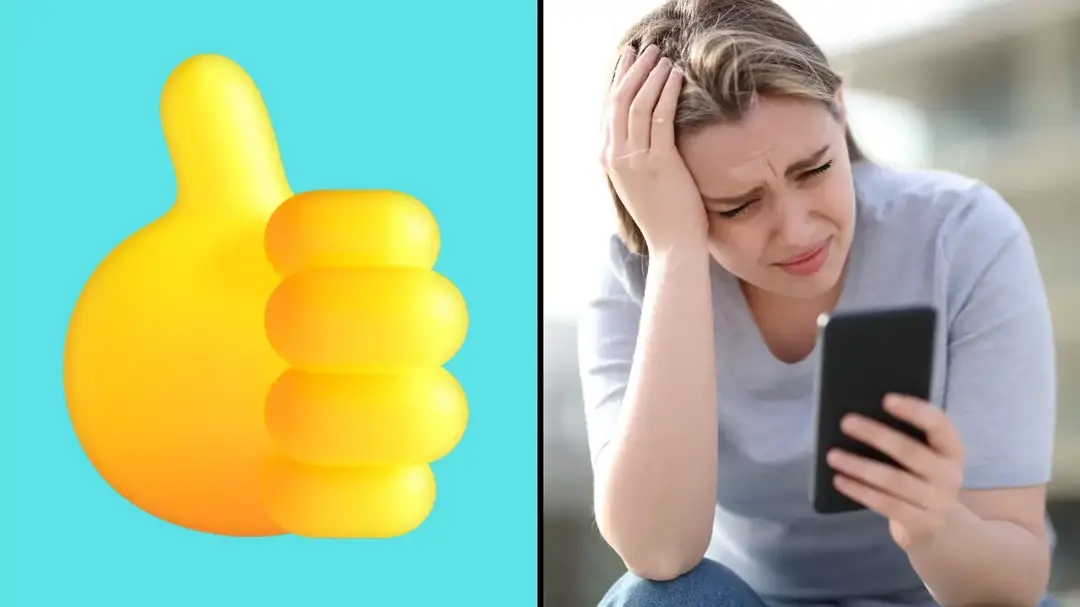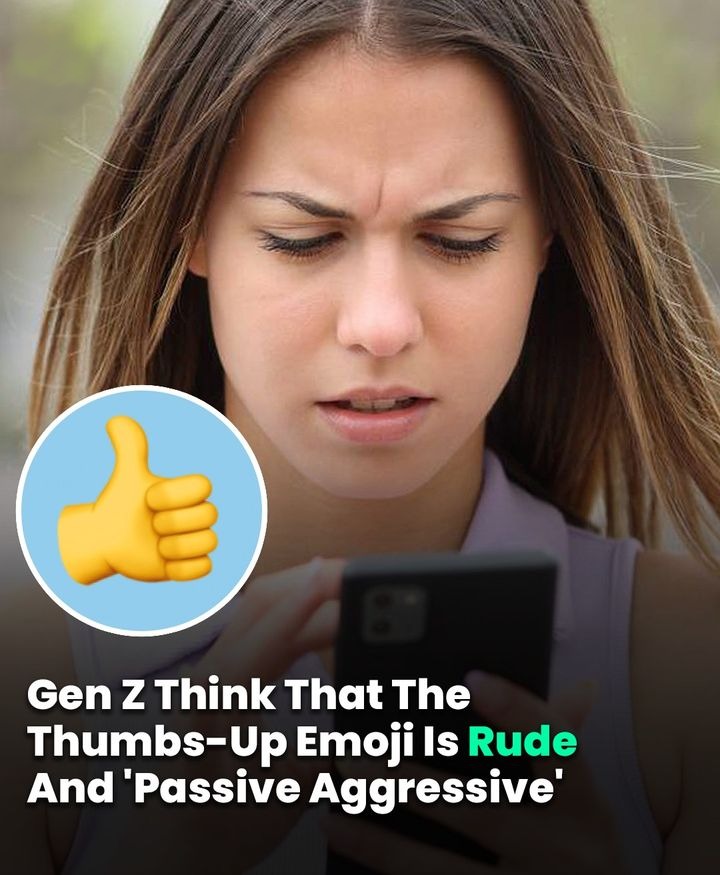Gen Z Think That The Thumbs-Up Emoji Is Rude And ‘Passive Aggressive’

Gen Z wants people to stop using the thumbs-up emoji as they think it comes across as ‘passive aggressive’.
This generation includes people born between the late 1990s and the early 2010s, who grew up with technology.
Many Gen Zs believe the emoji in question is rude, and apparently, it also makes people look old.
One young Reddit user recently took to the platform to find out if others were just as unnerved by the thumbs-up emoji when they receive it in a message.
And their post has left the internet divided…

“Currently, there are only a few emojis you can use to react to a message (unless of course, you respond, and can use any emoji).
“Most people at work use the ‘thumbs-up’ reaction all the time.
“I don’t use it much. I either ‘heart’ reactions or reply even if it’s a short ‘Great!’ or ‘Thanks!’ (I also feel like I use too many exclamation marks, but that’s a different story).
“Anyway, I think it’s normal to ‘thumbs up’ messages, but I still feel like it’s such an unsettling response.
“Does anyone else feel this way?”

Naturally, there’s been a raft of responses, with people divided on what the emoji actually means and how it should be used.
One person comments: “For younger people (I’m 24 for reference) the thumbs up emoji is used to be really passive-aggressive.
“It’s super rude if someone just sends you a thumbs up. So I also had a weird time adjusting because my workplace is the same.
“So yeah, it’s a generational communication culture difference.
“Everyone my age in the office doesn’t do it, but the Gen X people always do it. Took me a bit to adjust and get out of my head that it means they’re mad at me.”
A second user agrees: “I understand what you mean, my last workplace had a WhatsApp chat for our team to send info to each other on and most of the people on there just replied with a [thumbs up emoji].
“I don’t know why but it seemed a little bit hostile to me, like an acknowledgment but kind of saying ‘I don’t really care/am not interested?”
A third writes: “It’s not that odd to see it as passive-aggressive.
“Just imagine how would it feel to go into your boss’ room, say something, and then see him turn to you, look you in the eye, and [give you a thumbs up].”

However, many disagree that the emoji is an act of aggression.
One user says: “Passive aggressive? Are you being serious or facetious? It’s a thumbs up.
“It means ‘I got it’ or ‘OK, message received’.
“What in the world can possibly be passive-aggressive in that? Newsflash, not everything is a micro-aggression.”
A 40-year-old, who says they use the ‘thumbs up’ emoji ’90 percent of the time, has been left confused by those who find it ‘unsettling’ and have questioned whether it’s simply a ‘generational thing’.
Fox News host Emily Compagno says she doesn’t care what Gen Z thinks about her and the emojis she uses in a recent debate on the channel.
“We have to somehow change our behavior and our silent communication because they’re a bunch of snowflakes? No, thanks,” she comments.


